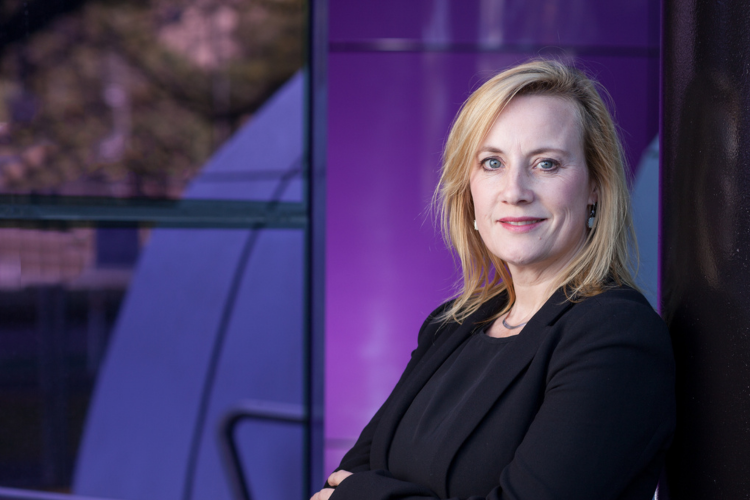Meet a researcher: Professor Kaylene Simpson
3 min read 10 August 2025
Meet Professor Kaylene Simpson, who heads the Victorian Centre for Functional Genomics (VCFG) at Peter Mac. An innovative leader with a passion for collaboration, Prof Simpson has walked an interesting path towards leading the VCFG.

Prof Simpson started her research career as a plant geneticist in the biotechnology sector where she was part of a team working to develop the blue rose. She then went on to undertake a PhD studying lactation biology in wallabies at La Trobe University, before taking on a postdoctoral position at the University of Melbourne working on the BRCA1 gene in breast cancer.
In 2002, Prof Simpson moved to the United States to expand her research direction to breast cancer metastases at Harvard Medical School. During her time at Harvard, she found that she most enjoyed working with core facilities – a relatively new model of special centres or labs with shared resources that support researchers. Inspired by this, Prof Simpson shifted her career in a new direction: one where she could combine her love of technology with her love of working with people.
“I was once told that I didn’t have to be a traditional group leader, and this has always stuck with me,” she says.
When planning to return to Australia she met with Professors Ricky Johnstone and Grant McArthur about the idea of establishing an academic core facility, similar to what she had experienced in Boston. Fortunately Peter Mac have always been at the leading edge of technology and had been thinking along similar lines. She returned to Melbourne in 2008, to establish the VCFG. In pitching this idea, she says:
“When I realised that I loved developing technology tools and collaborating with researchers, I felt I could establish a niche as a technology specialist supporting researchers across the country.”
The VCFG works as a kind of ‘one-stop shop’ for researchers to perform large-scale discovery screening projects using gene or drug targeting. A valuable resource to medical research nationwide, Prof Simpson and her team help researchers to design their projects, train them to use the sophisticated instruments and perform their screens and then deliver the data analysis. Creating partnerships with teams is an essential part of this service, one that Prof Simpson finds incredibly rewarding.
“I love working with people and teams to make a difference and help them improve their ideas. We’re privileged to collaborate with so many different researchers to unravel their unique questions and find new ways to address cancer.”
As pioneering as it is collaborative, the VCFG is a tech ‘early adopter’, developing new screening tools that help researchers to make new discoveries. These discoveries help to understand how cancer works, find new drugs for treatment, and develop new approaches to personalised therapies for cancer patients.
Funding from donors to the Peter Mac Foundation was crucial in forming the VCFG, and remains crucial in providing ongoing support to the VCFG and all Peter Mac core facilities.
Says Prof Simpson of Foundation funding:
“Donor support keeps us at the leading edge. We support researchers to pursue exciting new ideas with the support of Foundation grants, and the funds raised by the Foundation help us to purchase cutting-edge infrastructure. There are very limited ways for us to secure funding for large and expensive equipment that underpins discovery-based research.
“Put simply, we can’t work without it.”

